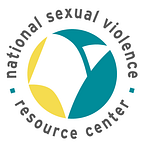Why we still need to hear survivor stories
By Rachel Haines
If you would have told me five years ago that I would have published a memoir on my story of surviving sexual abuse, that I would be writing a blog for Sexual Assault Awareness Month, or more blatantly — that I was a survivor — I wouldn’t have believed you. Instead, I may have stayed at home instead of going to college out of state to avoid the idea of becoming a victim of sexual assault. That’s because, in my head, college campuses were where “it” happened.
But ironically five years ago, I was already a victim of sexual assault. Twelve years old — not yet thinking about college, not yet knowing what exactly sexual abuse was, still under the protection of my parents — but yet, a victim. That’s because, while I had been sexually abused, I didn’t have the information necessary to understand that what had happened to me was abuse and wouldn’t until years later.
My story
My name is Rachel Haines, and I am a survivor of the serial molester physician, Larry Nassar. It’s very likely that you have heard that name before or maybe the names of my fellow survivors such as Aly Raisman or Simone Biles. News outlets and social media channels were buzzing with the story of the USA gymnastics team doctor who molested hundreds of women. How do you feel when you hear that name and learn what has happened to me? Do you feel an icky feeling in the pit of your stomach; a lovely combination of disgust and sadness? Do you feel pity for me?
Everyone reacts the same — even when I tell them that I’ve published a book, they are excited to ask me what it’s about — assuming that I’ll be proud to share. But I do not feel pride. I am not proud of my book and I can quite literally see the sparkle leave their eyes when I tell them it’s a memoir about my abuse.
But that’s the problem.
Silence around sexual abuse leads to more abuse
There is a stigma around sexual assault. Five years ago, before the Me Too movement made these conversations more universal, the words “sexual assault” would have been hard to leave your lips, and you may have even felt uncomfortable making it the topic of conversation. It was so feared, that it was avoided. Survivors didn’t talk about their trauma because they didn’t want others to feel that lovely combination of disgust and sadness; they didn’t want to project their experience. But things are beginning to change.
My abuser’s case was so public because of the number of victims that came forward. But sexual assault is just as traumatic for a survivor whose abuser victimized them alone. People were forced to listen and learn about my case because hundreds of women were sharing their stories.
The crazy thing is if other survivors hadn’t gone public with their descriptions of abuse, I would have never truly understood how I was a victim at all. It is the conversation that creates awareness.
It’s the stories that serve as lessons for other women.
It is the act of coming forward and sharing that defines the line between what is acceptable, and what is abuse. If society refuses to discuss the actions of abusers, the abused have no way of knowing if their feelings of discomfort they experienced are valid.
How was I supposed to know at 12 years old that it wasn’t okay for a doctor to insert himself into me without consent, without gloves, and without warning? I know those words may make you uncomfortable — but it makes you and future generations aware. Because I shared those disgusting and sad words, you know that it is not okay if a doctor tries to do the same to you. You know your doctor needs to wear gloves while treating you, that they need your consent first, and that if you ever feel uncomfortable, your feelings are valid.
So let’s talk. Let’s talk about the stories, the memories, and the experiences. Let’s share traumas and the feelings that resulted from them. Because when we talk, we educate, and when we educate, we prevent.
Rachel Haines was a two-time member of the U.S. Women’s Gymnastics Team, two-time National Champion, and Division I college gymnast at the University of Minnesota. She holds a bachelor’s degree in child psychology and a master’s of education degree in family social science. Haines lives in Mendota Heights, Minnesota, a suburb of the Twin Cities.
